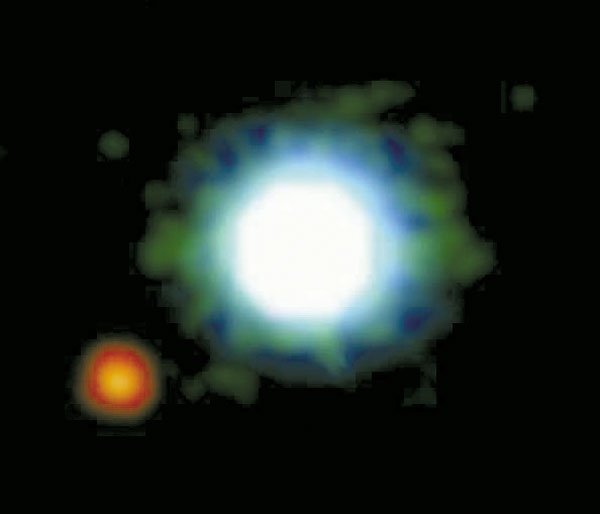May 3 Northern Crown
The modest constellation Corona Borealis, the northern crown,
climbs the eastern sky this evening. It’s a delicate semicircle of
seven stars that really looks like a crown.
May 3 Northern Crown
The modest constellation Corona Borealis, the northern crown, climbs the eastern sky this evening. It’s a delicate semicircle of seven stars that really looks like a crown.
May 4 Ursa Major
Ursa Major, the great bear, is high in the north this evening. The bear’s body and tail form the Big Dipper. The bear aims nose-first at the northern horizon.
May 5 Denebola
Leo, the lion, dives head-first toward the western horizon during May and June evenings. Right now it stands almost directly overhead as darkness falls, and sets six or seven hours later. The last of its bright stars to set is Denebola, “the lion’s tail.
May 6 Centaurus
Centaurus, the centaur, hugs the southern horizon this month. It stands due south in late evening. The brightest star of Centaurus visible from the southern United States is Theta Centauri. The centaur’s brightest star, Alpha Centauri, remains below the horizon.
May 7 New Moon
The Moon is “new” early tomorrow. It passes between Earth and the Sun, so it’s hidden in the Sun’s glare. And even if the Sun were not in the way, there still would not be much to see. It’s night on the lunar hemisphere facing our way, so the entire disk is dark.
May 8 Sirius Disappears
Sirius, the brightest star in the night sky, is about to disappear in the evening twilight. Look for the star blazing brightly low in the southwest beginning in early twilight. It sets a couple of hours after sunset.
May 9 Vega Rising
The star Vega, one of the harbingers of summer, peeks above the northeastern horizon around 9pm. Vega is one of the brightest stars in the night sky, so it’s easy to find. It also is one of our closest stellar neighbors, at a distance of about 25 light-years.












